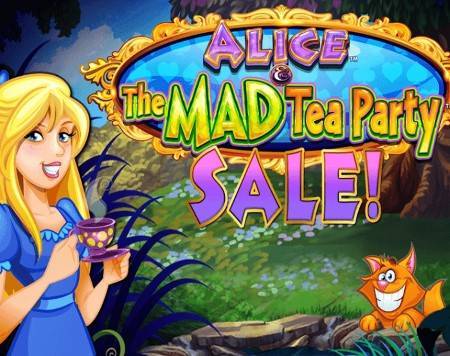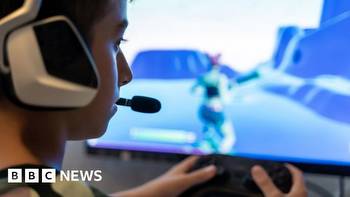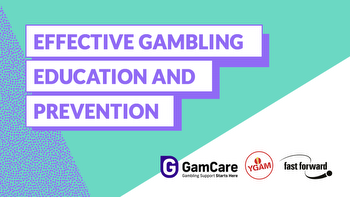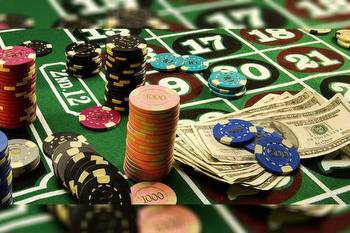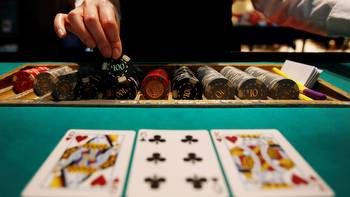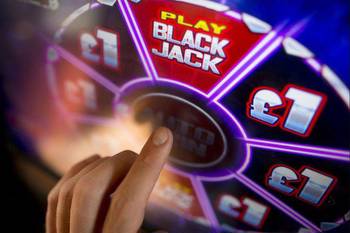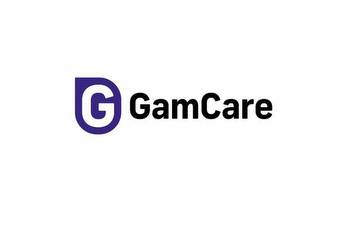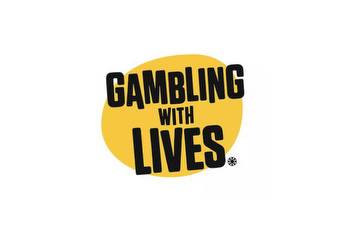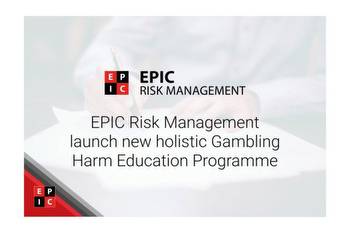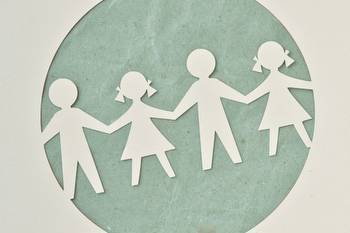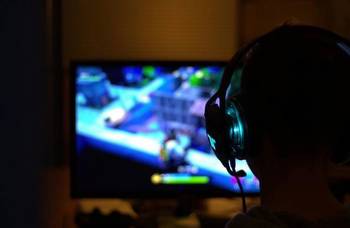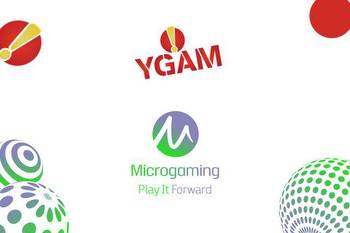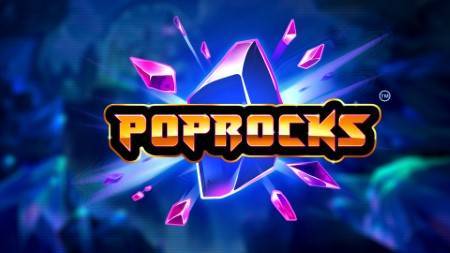Game over: the risks of children gambling
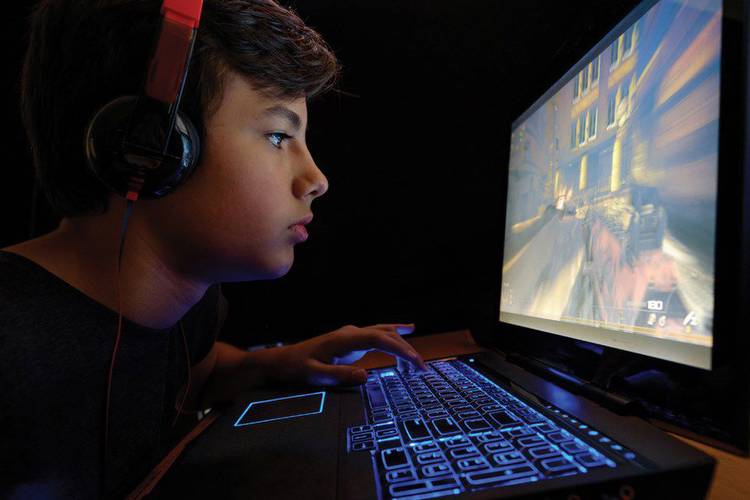
Charlotte Goddard
Tuesday, October 26, 2021
There are around 55,000 “problem” gamblers aged 11 to 16 in the UK, according to the National Audit Office, with a further 85,000 estimated to be at risk. A 2019 Gambling Commission survey found 11 per cent of 11- to 16-year-olds said they spent their own money on gambling in the past week.
Young people’s gambling often looks very different to adult gambling but can still have devastating consequences on their education, health and finances. “They are not going into bookies,” says Alexa Roseblade, young people’s participation lead at charity GamCare. “A lot of young people are gambling with friends such as making a bet about who will win a race.”
For young people, gambling and gaming are often closely linked. “They may be playing Fifa and betting a pound on who wins,” says Daniel Bliss, director of external affairs at the charity Young Gamers and Gamblers Education Trust (YGAM). “It is done on WhatsApp or in school, so there’s no gambling operator involved that can intervene.”
Games themselves can encourage behaviour linked to gambling. A game might cost £40 but children are encouraged to spend more money to progress further. There are also issues around “loot boxes”, where players are encouraged to buy mystery prizes within a game, without knowing what they will get.
Under UK law loot boxes are not classified as gambling but a consultation is looking into whether under-18s should be prevented from buying them. “If young people don’t get what they want, they pay for another go and it keeps going,” says Bliss. “These are gambling-like behaviours. By the time a young person gets to 18 and can legally gamble they may be blind to the risks because it’s just normalised.”
The NHS’s National Centre for Behavioural Addictions houses the National Problem Gambling Clinic and the National Centre for Gaming Disorders. The gambling clinic accepts referrals for children as young as 13 but receives few for under-16s, says service manager Becky Harris. The majority of young people the centre sees are diagnosed with “online gaming disorder”. “It is not just casual gaming,” says Harris. “It’s where they prioritise gaming over other areas of life.”
These young people may be gaming 12 or 14 hours a day – often during the night so there is an impact on sleep. They may have stopped going to school and relationships at home and with peers may have broken down. “Despite the consequences, they’re still not able to stop or control the level of gaming,” says Harris.
More than one in 10 European 11- to 17-year-olds said they increased the amount of money they spent on in-game purchases over lockdown, according to data firm Statista. Some 41 per cent also increased the amount of time spent playing video games.
Gaming has many positive sides, such as keeping young people in touch with their friends, but parents who relaxed boundaries during lockdown may find it difficult to reinstate them. Referrals to the National Centre for Gaming Disorders increased during lockdown, says Harris, although this could be because the centre is relatively new.
Gaming can be used as a coping mechanism, says Rebecca Lockwood, consultant clinical psychologist at the National Problem Gambling Clinic and National Centre for Gaming Disorders. “A lot of our young people will be on the autistic spectrum or have ADHD [attention deficit hyperactivity disorder],” she says. “Some people use gaming to cope with traumatic events in their life, such as bullying or divorce, so often it’s part of a bigger picture.”
YOUNG PEOPLE AND GAMBLING IN NUMBERS
36% of young people aged 11 to 16 spent their own money on gambling in the past year
11% spent money on gambling activities in the past week, spending an average of £17
12% have played an online gambling-style game. Nearly half played the game via an app
52% have heard of in game items and 44% of those paid money to open loot boxes to get them
69% say they have seen or heard gambling adverts or sponsorship
50% said someone had spoken to them about the problems gambling can lead to
Conversations about gambling
YGAM has developed a programme focusing on children in care, who may be less likely to have conversations with the adults in their life about gambling and gaming. The charity says demand is high. YGAM and GamCare are also developing resources for young people from ethnic minority backgrounds and raising awareness among community and faith leaders. Gambling is forbidden or frowned upon in many religions and this stigma can prevent young people from seeking help, says Roseblade.
In December 2020, the government launched a review of gambling legislation and is expected to publish the results by the end of the year. Issues under review include gambling companies’ marketing activities and the issue of loot boxes.
Online sales of lottery tickets and scratch cards to 16- and 17-year-olds were banned earlier this year, and gaming and gambling awareness was added to the personal, social health and economic (PSHE) education curriculum for schools in June 2021.
The Young People’s Gambling Harm Prevention Programme, delivered by YGAM and GamCare, aims to ensure all 11- to 19-year-olds receive at least one session of gambling awareness education over the next four years (see case study).
In September, charity Gambling with Lives launched its own education programme, to be piloted at schools in Essex, Manchester, and Northern Ireland before being rolled out across the country. The charity says the evidence-based programme covers basics about gambling including understanding odds, risk and the “house edge” – the mathematical advantage the gambling company has over the player. It will also look at how addictive products work and the methods and impact of industry marketing.
In addition to its preventative work, GamCare provides a support service to children and young people experiencing harm. “It is age appropriate and supports them in a way they want to be supported. It is very user led,” says Roseblade.
The National Problem Gambling Clinic and National Centre for Gaming Disorders offers young people an intervention based on evidence-based treatment for addiction including cognitive behavioural therapy. Parent support groups aim to help parents set boundaries and communicate more effectively with their children.
Professionals including teachers, police officers, social workers, youth workers and health workers all have a role to play in spotting the signs of gambling and gaming-related harm. “I often get contacted by child and adolescent mental health services teams saying they’re working with this family on all sorts of issues but gaming is something they have no experience of,” says Lockwood.
The National Problem Gambling Clinic and National Centre for Gaming Disorders delivers workshops to professionals to support them with issues around gaming and gambling. Meanwhile, YGAM’s Mindful Resilience Programme helps healthcare professionals access quality training on gambling and gaming harm in children and young people.
GamCare also runs workshops on how to start and structure a meaningful conversation with a young person who seems to be experiencing harm and how to spot the role gambling or gaming might be playing in the young person’s life. “It may seem like a daunting task to refer a young person into a service, but if you’re not sure, we offer a consultation service and you can call and have a chat,” says Roseblade.
She says it is vital professionals that work with young people are clued up. “Young people are generally very early adopters of new technology so are quite often the first to experience problems,” she says.
Teachers and youth workers learn how to prevent gambling harms
By Daniel Bliss, director of external affairs, Young Gamers and Gamblers Education Trust
Just like many other industries, the rapid innovation of technology has revolutionised gambling in this country and globally. Young generations now grow up entwined in the digital world, always just a few clicks away from the online galaxy of gaming and gambling.
Specialist research agency Childwise revealed last year that 90 per cent of 11-year-olds have their own phone. Given the increased number of games available on smartphones using gambling-style mechanisms, along with loot boxes featuring more frequently in regular games, today’s young people are more exposed to gambling than previous generations.
At the Young Gamers and Gamblers Education Trust (YGAM), we strongly believe education is essential to prevent gambling harms and want every young person in the UK to receive educational sessions on the potential harms of gambling during secondary school.
That’s why we’re working in partnership with the charity GamCare to deliver the groundbreaking Young People’s Gambling Harm Prevention Programme. YGAM’s specialist team of resource writers were delighted to win the award for personal, social, health and economic (PSHE) education at the CYP Now Awards 2020 for the materials and programme they developed for schools.
Supported by the Betting & Gaming Council, the four-year programme launched in January 2020 and is the largest of its kind. It aims to deliver education, training and support to 11- to 16-year-olds across England, Wales and Northern Ireland, as well as collaborating with other organisations across Scotland.
As part of the programme, YGAM provides free specialist training to teachers and youth workers who then deliver awareness sessions directly to the groups of young people they have influence over. The training, which can be delivered online or in person, is evidence-led and independently evaluated. In 2019, YGAM became one of the first organisations to be awarded City & Guilds Assured status for our resources following a robust evaluation process. All practitioners receive formal certification on completion of the training, meaning they also gain a recognised qualification.
Those professionals who go through the YGAM training gain access to a comprehensive bank of over 450 resources designed specifically to be used with young people from ages seven to 25. These cover a variety of topics and can be used for a long-term programme of study or a single session. YGAM works closely with schools to develop study and lesson plans from Key Stage 2 to Key Stage 5. The programme is mapped to the curriculum for Wales with resources available in the Welsh language. We recently launched lesson plans and resources mapped to the Northern Ireland curriculum.
PSHE curriculum
In June 2021, the topic of gambling was formally added to the PSHE curriculum in England for the first time alongside subjects such as drugs, alcohol and mental health. We welcomed this move and aim to train thousands more teachers during the new academic year. We believe society has a responsibility to educate young people about the risks of gambling, just like we do on public health matters. It is imperative we equip young people with the knowledge and understanding to reduce their vulnerability as they reach the legal age to gamble. The level of gambling advertising in the UK has transformed gambling businesses into household brands, so it is naive to think young people are unaware of gambling before they turn 18.
The Covid-19 pandemic dramatically changed both personal and work life. The charity sector in particular faced profound challenges impacting both funding and how organisations were able to reach the people they have the responsibility to support. Rather than taking the decision to suspend our activities, the YGAM team responded creatively and reconfigured content for digital platforms. Our blended digital offer proved popular with both teachers and other professionals. As well as the training, we also launched our “parent hub” website at www.parents.ygam.org which is dedicated to providing resources and activities to support families and safeguard children.
We engage with the education sector daily and are constantly listening to the needs of teachers, practitioners and young people. It is clear from these conversations that teachers and practitioners need YGAM’s resources more than ever.
There is an enormous demand for information on gambling and gaming harm. Both YGAM and GamCare surpassed our first-year targets for the programme, despite significant challenges imposed by the pandemic. So far this year, YGAM has already reached more than 600,000 young people and trained more than 3,000 practitioners.
Looking ahead and as we emerge from the global pandemic, we are ambitious in what we want to achieve. We’re continuing our online delivery offer but also returning to face-to-face delivery. Our team of former teachers, youth workers, practitioners and individuals with lived experience are working tirelessly to reach more communities in more regions. We hope to educate and safeguard millions of young people over the next few years.
Teachers and youth workers interested in YGAM’s free training and resources can find out more by emailing the charity attraining@ygam.org or visiting the website atwww.ygam.org
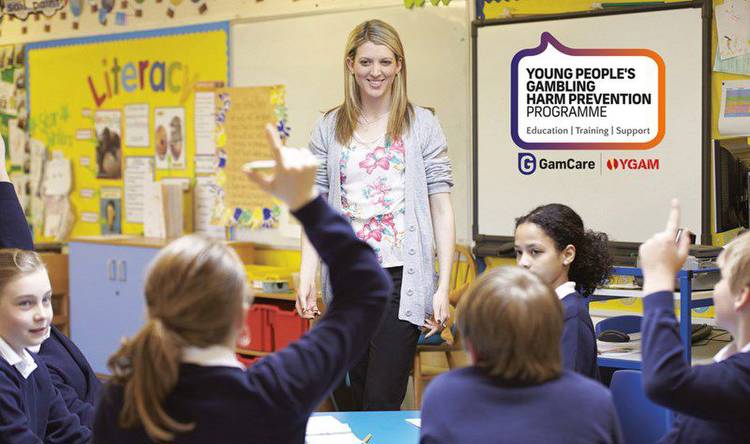
TOP TIPS TALKING TO YOUNG PEOPLE ABOUT THE DANGERS OF GAMBLING
One in five adults with gambling problems started to gamble before they were 18, so an open conversation with a child or young person now could help avoid difficulties down the line. There are no scripts for tricky topics like gambling, but being prepared can help you feel more confident, as does accepting the fact you don’t have to be an expert. Here are five top tips on how to get the conversation started:
Talk about gambling. You may worry about putting ideas into children’s heads but the likelihood is they are already forming attitudes to gambling without adult input. This is especially true for young people who are more likely to be exposed to – or have access to – gambling through digital devices, social media and interaction with their friends. That’s why it is so important to talk to children and young people about gambling from an early age.
Pick your moment. Children and young people can smell a lecture a mile off so grab opportunities as they arise – perhaps on the way to a sports session or when a gambling ad comes on TV. Don’t feel you have to cover everything in one chat. The most important thing is to let young people know the topic is on the table and they can talk to you about gambling at any time.
Be a good role model. If children and young people are regularly exposed to family members or others gambling, it sends a message that it is a harmless, risk-free activity. You’ll also be much less likely to be taken seriously. Children are always good at noticing if what you say doesn’t match what you do.
Talk about the harms. Gambling harm is not just about losing money. Make sure you discuss the potential adverse impacts from gambling on health and wellbeing, families, communities and society. These harms impact on people’s resources, relationships and mental health. Negative effects can include loss of employment, debt, crime, breakdown of relationships and deterioration of physical and mental health. At its worst, gambling can contribute to loss of life through suicide.
Use the support available. It is important parents and practitioners know the facts about gambling. There are lots of websites providing free advice, guidance and support on the topic. Educate yourself on the types of gambling young people may be engaging in and know how to spot the signs of gambling harm.
SIGNS OF GAMBLING HARM
Mood and behaviour
Becoming withdrawn from others such as family and friends
Performance at school is affected
Seeming worried, agitated or upset for no apparent reason
Reporting feeling hopeless, depressed or frustrated
Changes in personality – sleeping, eating, or relationships
Money or valuables missing
Always short of money
Borrowing money on a regular basis
Being secretive about money
Spending more and more time gambling or gaming
Being secretive about unexplained absences
Often being late for commitments
Taking a lot of days off sick
Taking an unusual amount of time to complete simple tasks
- Latest digital issues
- Latest online articles
- Archive of more than 60,000 articles
- Unlimited access to our online Topic Hubs
- Archive of digital editions
- Themed supplements
- Latest print issues
- Latest digital issues
- Latest online articles
- Archive of more than 60,000 articles
- Unlimited access to our online Topic Hubs
- Archive of digital editions
- Themed supplements
- Exclusive offers
- Latest print issues
- Themed supplements







